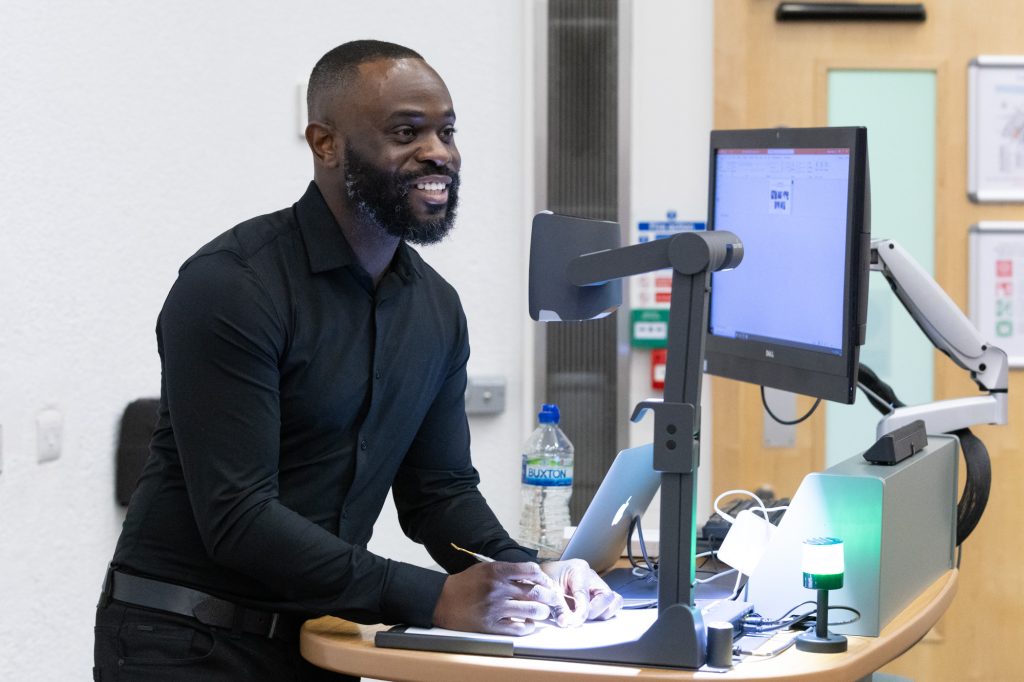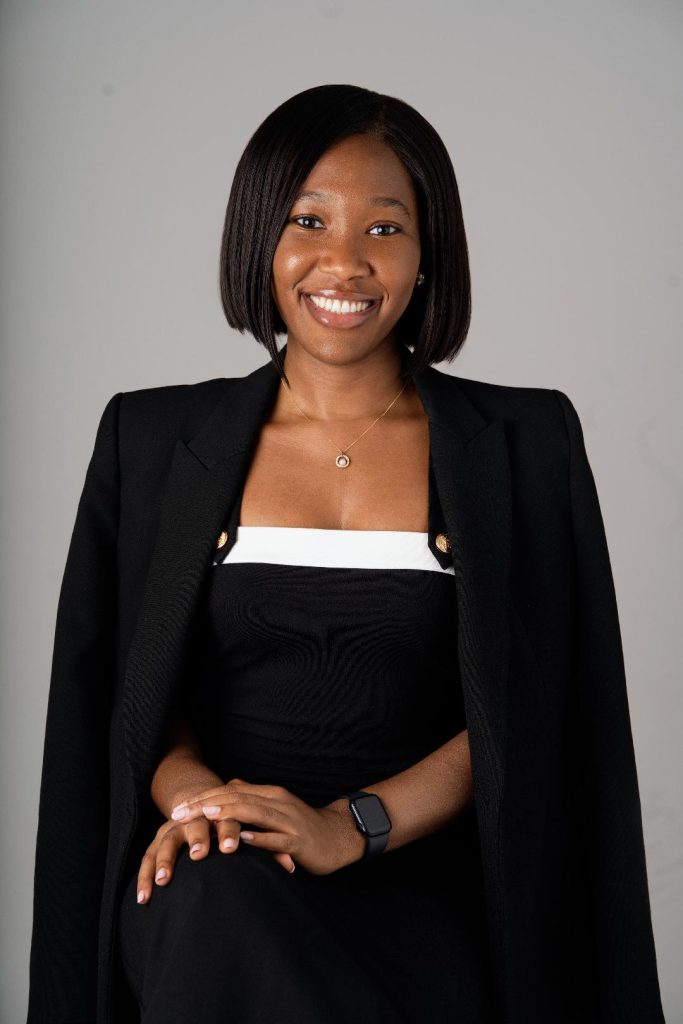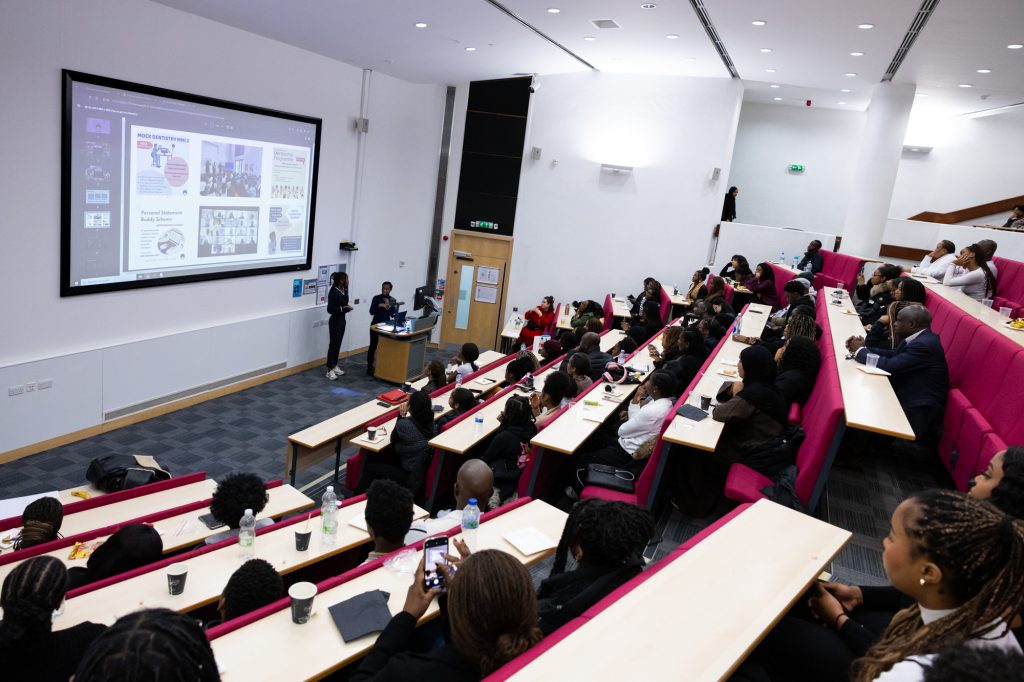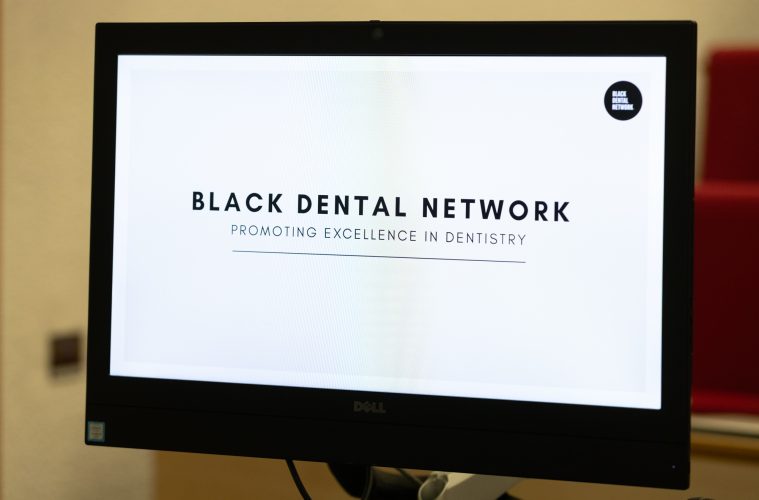From possibly my mid-teens I can recall having my first and only Black dentist in the UK. This was not a deliberate effort on my part to be allocated a Black dentist. I was insouciant. For me, a visit to the dentist was just a mundane occurrence, but I do remember the shock of witnessing a Black dentist and the feeling inspired.
Relatives in the Caribbean barely batted an eyelid in the presence of a Black dentist. Even to some degree, in the U.S where just 3.8% of dentists are said to be Black out of 14.4% of those who self-identify as Black, relatives across the pond would not make a big deal. Out of about 73% of the working-age Black population (21 and above as this tends to be the youngest for a dentist across the various States), Black Americans only account for approximately 5.6% of the demographics of dentists. When one also considers that as of 2022, the median age for a Black American is 32 years old, just short of 6 years younger than the national average, the number of Black dentists appears to be even smaller.
Closer to where I reside in the UK a dismal 1.7% of dentists and roughly 2.2% of dental care professionals (DCPs) are purported to be Black.
The makings of the Black Dental Network
An organisation, the Black Dental Network (BDN) is here to alleviate some of these gross disparities. Not surprisingly for me, I learned that the reification of the BDN was in the words of their Executive Chair, Dr Dammy Awe, ‘’very accidental’’. BDN was born out of a void, but was not intentional, rather as the organisation developed it began to find its purpose, continuously expanding and metamorphing to ensure that those from a Black background working within the Dental industry are amplified and supported via social and community enterprises. BDN is forever looking to the future and therefore has an overarching commitment to raise awareness and impel young people to consider a career in dentistry.
Graduating from the school of dentistry at the University of Birminghamback in 2011, before completing his foundation Dental Training on the Peterborough Scheme of the East of England Deanery a year later, Dr Dammy Awe has always been dedicated to providing those who entrust him with his dental services, a truly tailored experience. Speaking about how BDN was founded, the esteemed dentist said: ‘’It started off as a WhatsApp group. It was very informal. In fact, it wasn’t called BDN. It was called Fresh Dentists at the time.’’
Dr Awe adds ‘’There were six, seven or eight Black clinicians in that WhatsApp group. Now, not everyone in that group knew everybody, but someone in the group knew at least one other person and most of us had never met. We were just there to kind of encourage each other. We would discuss cases. People would come up with issues that they were experiencing, and we would talk about it’’.

Dr Dammy Awe addressing an audience of year 10 – 12 school children at the University of London’s King’s King’s College
The WhatsApp group continued to operate in this informal, yet supportive manner for a year. During this period, the group went through stages of idleness with sporadic interaction, but the lack of activity never led to the groups’ demise. What perhaps rescued the WhatsApp group from oblivion was a member of the group sharing a predicament that they were facing at their practice. Interaction with the group began to peak again, reverting to the earlier days of the group where words of encouragement and the sharing of experiences were routine. The group evolved into something more tangible, and all members of the WhatsApp group would finally meet in the flesh.
‘’We met at a restaurant in London. Again, seven or eight of us, who were more or less strangers. It was like we knew each other for years. The conversation was easy. We all realised that we had similar experiences. Some of us worked in London close to each other and didn’t know that we were that close. And that was really the trigger for us thinking that we could perhaps formalise this’’ said Dr Awe.
No longer confined to a social media space, the movement continued to grow, though growth was not forceful like a desperate recruitment consultant persuading someone to join their books. In contrast, the group expanded organically. From the eight people in their initial meeting at a restaurant, the group multiplied to twenty and with every subsequent meeting, more new faces from the world of dentistry would appear.
The Black Dental Network (BDN) was born out of the networking of those in dentistry. ‘’That is when we realised that actually there is huge value in this. People are getting a lot of benefits from it. Let’s formalise it’’ said Dr Awe.
Bridging the gap in Dentistry
Fellow BDN core team member, Dr Chinwe Akuonu is the lead of the “Grassroots” project, which helps expose under-represented students to Dentistry, by showcasing the benefits a dental career has to offer, while bridging gaps between different organisations within dentistry and external organisations. Dr Chinwe, finalist for London’s Best Young Dentist, serves as a mentor to aspiring and current dental students, sits on the Editorial Advisory Board for the renowned Dentistry Magazine, makes compelling content about dental education and oral health, while collaborating with various respectable dental brands and Universities in the UK.
‘’At that point I had never been to a dentist before in my life’’ – Dr Chinwe Akuonu

Dr Chinwe Akuonu
Growing up in Italy, her experience was difficult, to say the least. ‘’We were the only Black family in the area. My sisters and I were the only Black students in the whole school’’ revealed Chinwe. The racism was rife in Italy. A distant reality from her earlier childhood in Nigeria before reaching 12 years old and moving to the Southern/Western European country. After completing high school in Italy, Dr Chinwe at 19 had no idea what she wanted to do next.
‘’I didn’t want to initially commit to anything massive, like a typical five-year course, without understanding what I was passionate about. So, I thought, let me just look for something shorter in the meantime, hoping that I would figure it out as I go’’ said Chinwe.
Dr Chinwe describes her entrance into dentistry as completely ‘’random’’. Her sister was examining the pages of a university prospectus and was going through three-year courses and stumbled across a dental hygiene course. ‘’At that point I had never been to a dentist before in my life’’ admits Chinwe. Curiosity led to her enrolling on the degree at Italy’s University of Brescia.
Although Chinwe enjoyed her degree, her environment was not conducive for learning. In Italy, dentistry is a small intimate fraternity. ‘’Everyone knows everyone. It is not as big as London’s institutions. Each cohort is made up of 15 students per year’’. From induction, Chinwe felt like an outcast. In comparison to her formative years, the racism she endured was just as horrid. ’Very few people would speak to me’’ said Chinwe. ‘’I thought dealing with more mature people, would lead to a wonderful university experience, but it was the complete opposite. I was really frustrated, lonely, and never fully accepted’’ she added.
Chinwe’s University had a partnership with the University of London’s King’s College. Representatives from King’s College did a presentation at her institution in Italy, which propelled her to successfully finish her degree at the University of Brescia in dental hygiene. After working for several years and gaining vital experience, Chinwe was determined to apply to King’s College and study for a five-year degree in dentistry.
Dazzled by the diversity of London, Chinwe was excited. However, once on her course at King’s College, she had to contend with some troubling statistics. ‘’We have 150 students every year for cohorts, and out of that number, there were only four or five Black students. But it was still definitely better than Italy because most of my friends were from all over the world. You had everybody, Black, Brown, White and it was welcoming. That changed my whole experience’’ said Chinwe.
Speaking out: Providing Social and Cultural Capital
Coming to the close of Chinwe’s second to last year at King’s College, George Floyd was racially assassinated by Minneapolis police officer, Derek Chauvin.
”That episode made pushed me reflect over my life as a Black female, and reassess every aspect of my life, including education. I realised that even at university, I had one or two experiences where I wasn’t really sure what was going on. There were blurred and covert actions and comments that made me question: Is this racism? Because I was so used to extreme racism. I didn’t actually realise that even the little subtle things were still happening here in London. I had overlooked them because I was just grateful that I was not living a horrible life. But then once the whole George Floyd situation happened, someone reached out to me from a dental magazine, asking me if I wanted to write my opinions as a Black dental student and that was when I decided to speak out’’ said Chinwe.
Dr Chinwe recognises the imperativeness of the BDN in being able to advise students who may not have a tradition of family members who have worked within dentistry. ‘’What are the barriers? You’ve got the good grades; you’ve passed the exams. What are the support systems at the universities to keep them going?’’ asks Chinwe.
Chinwe draws some similarities between Italy and the UK. Although not everyone knew each other in London, there was still an element of familiarity. At King’s College, people may have been more accommodating, but some students were afforded cultural and social capitals that were predicated on whether their mother or father, uncle, aunt, sister or brother had a background in dentistry.
Regardless of one’s background dentistry can be a lonely career which is only intensified by instances of exclusion. ‘’What you see, especially in the universities is very evident. Yes, people have connections. They know people in the year above. They get past exam papers beforehand. As they come out of university, they already know what job they are lining up for. They know what way their career is going. They know what they are doing in two- or three years’ time. They have mentors to go to. You don’t have that in the Black community in dentistry’’ said Dr Dammy Awe.
Leaning forward with a stern face, Dammy adds ‘’What I found is that it is easy to get left behind. People are given all these opportunities, and when you think to yourself, well how did they get that? It’s just that they know someone who knows someone who knows someone.’’

BDN provides invaluable information such as personal statements schemes and mentoring schemes. Click image to enlarge
The BDN aims to dismantle the obstacles that can impede the progression of those aspiring to enter dentistry and can equally encourage those who never considered dentistry as a viable career because not everyone is going to fortuitously end up studying dentistry like Dr Chinwe did. There must be a greater conscious raising operating to disrupt the status quo. Clearly, the support systems that BDN provides are invaluable.
Unknown proximities to Black Dentists: Visibility and Representation
As Chinwe reiterated ‘’Something that Dammy said, was that: We didn’t realise that we were all close to each other and didn’t realise that we existed’’. If it were not for the WhatsApp group that fostered this unshakable movement, Black dentists and dental care professionals within the UK would be fragmented. For example, Chinwe and Dammy work less than 10 minutes from each other but would have been oblivious to this reality had it not been for the BDN.
The BDN’s objective is to increase visibility and representation. If the number of Black dentists is going to soar, the next generations must be involved. BDN’s Grassroots initiatives were initially focused on targeting schools, particularly schools that have a high density of children from a Black background. After some deliberation, a consensus was made within the BDN committee that a more effective method would be to host an event where the organisation can attract more people in a shorter period, using fewer resources.
The first official Grassroots event that the BDN hosted was at the King’s College in February 2024 and was mainly for year 10 – 12 school children. The session served to educate the audience about the myriad of opportunities within dentistry and the stages one must take to enter the profession.
Reflecting on the event, Dammy said: ‘’The essence of the day was to expose and inspire. So, we exposed them [young people] to different careers within dentistry, different specialisms within dentistry and inspired them by visibly showing them that “they can actually do this”. These people who are standing in front of you run practices, are consultants at the best hospitals in the UK and they are Black just like you. They have names just like you. They grew up in places that you grow up in’’.
The BDN is a network that is not restricted to dentists. The organisations memberships have Dental hygienists and Dental Therapists and as the BDN continues to surge, they aim to embrace Dental Technicians and Dental Nurses within their membership.
To find out more about the Black Dental Network, visit: https://www.blackdentalnetwork.com




